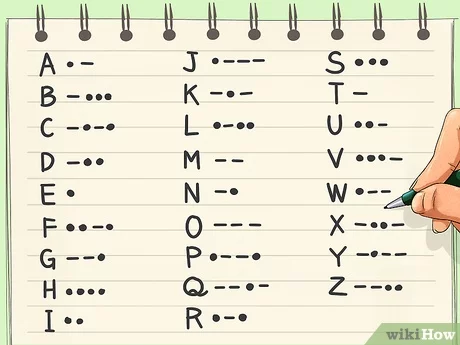Morse code decoders play a crucial role in amateur radio by assisting operators in decoding Morse code signals. Morse code, a system of representing letters and numbers through a series of dots and dashes, has been used in radio communications for over a century. While it is still possible for operators to manually decode Morse code, Morse code decoders provide a valuable tool for automating this process.
Here are some key points regarding the role and importance of Morse code decoders in amateur radio:
Signal Reception: Morse code decoders are designed to receive and interpret Morse code signals transmitted over the airwaves. They can efficiently detect and process Morse code signals, ensuring accurate message decoding.
Accuracy and Speed: Morse code decoders excel at accurately and rapidly translating Morse code into readable text. They can handle high-speed transmissions that may be challenging for human operators to decode accurately.
Operator Assistance: Decoders serve as valuable aids to operators, especially during prolonged operating sessions or when dealing with weak or challenging signals. They reduce operator fatigue and allow for more efficient communication, particularly during contests, emergency situations, or when copying long messages.
Learning Tool: For amateur radio operators learning Morse code, decoders can be valuable training tools. By comparing their own decoding attempts with the decoder's output, operators can reinforce their understanding of Morse code patterns and improve their proficiency.
Accessibility: Morse code decoders contribute to the accessibility of amateur radio by enabling individuals with limited or no Morse code proficiency to participate. People with disabilities or those who are new to Morse code can use decoders to facilitate their involvement in the hobby.
Contesting and DXing: In amateur radio contests and DXing (contacting distant stations), where operators strive to make as many contacts as possible within a limited time, Morse code decoders are invaluable. They help operators swiftly copy callsigns, exchange information, and log contacts accurately, improving their competitive edge.
Error Checking: Morse code decoders can aid in error checking by highlighting potential mistakes made during manual copying. They can detect and flag incorrect characters, allowing operators to review and correct any errors.
Multimode Decoding: Modern Morse code decoders often support various modulation types, allowing operators to decode Morse code sent via different methods, such as audio tones, radio signals, or computer interfaces.
While Morse code decoders are incredibly useful tools, it's worth noting that developing proficiency in manually decoding Morse code remains a valuable skill for amateur radio operators. Manual decoding provides operators with more flexibility, adaptability, and the ability to copy weak or noisy signals that may challenge decoders.
Overall, Morse code decoders enhance the effectiveness, efficiency, and accessibility of Morse code communication in amateur radio, making them significant assets to operators in various scenarios.







